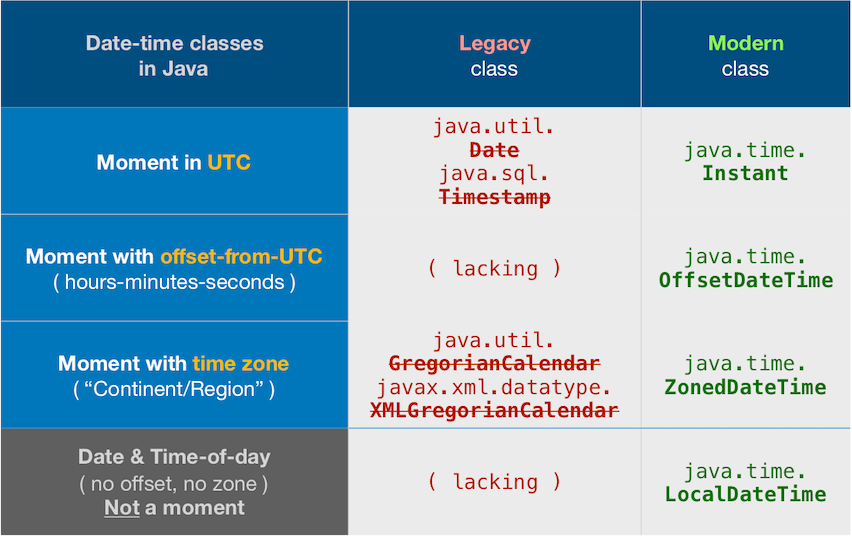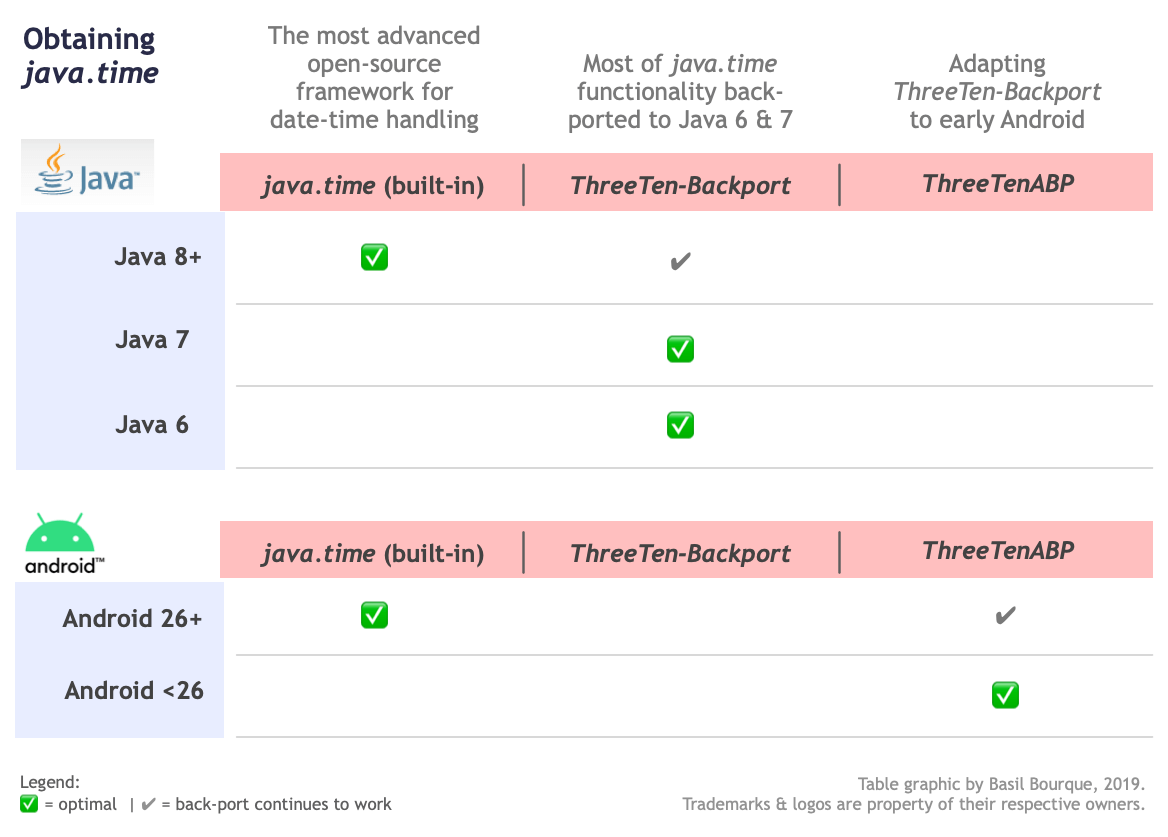How is custom epoch time calculated? Not UNIX era
I’m receiving data from the server in seconds and I want to convert it to the latest data.
But the seconds I received are not since UNIX epoch 01/01/1970, but 01/01/2000.
Usually I would use:
SimpleDateFormat formatter = new SimpleDateFormat("dd/MM/yyyy", Locale.US);
String dateString = formatter.format(new Date(millisToConvert));
where millisConvert is the number of seconds I received to convert to milliseconds. But now, naturally, I get the wrong date because the source is different. How do I change the epoch (origin)?
Solution
tl; dr
OffsetDateTime.of( 2000 , 1 , 1 , 0 , 0 , 0 , 0 , ZoneOffset.UTC ) // Define your epoch reference moment.
.pluSeconds( yourSeconds ) // Add the number of seconds given to you. Returns another `OffsetDateTime` object rather than altering the original (immutable objects pattern).
.toLocalDate() // Extract a date-only value without time-of-day and without offset-from-UTC.
java.time
Use modern java.time classes to replace the dreaded old legacy classes such as Date and Calendar.
Immediate
AnInstant represents a moment in UTC.
Define your specific era reference datetime.
Instant epoch = Instant.parse( "2000-01-01T00:00Z" ) ;
Add your seconds.
Instant later = epoch.plusSeconds( yourSecondsGoHere ) ;
Offset datetime
If you want a pure date value with no time and time zone, use the LocalDate class. First, convert the base type Instant to a more flexible OffsetDateTime, specifying the constant ZoneOffset.UTC as the offset.
OffsetDateTime odt = instant.atOffset( ZoneOffset.UTC ) ;
Local date
Extract date-only values.
LocalDate ld = odt.toLocalDate() ;
About java.time
placed in Java 8 and later within the java.time framework. These classes replace the troublesome old classes legacy datetime classes, eg java.util.Date , Calendar , & SimpleDateFormat .
<a href=”http://www.joda.org/joda-time/” rel=”noreferrer noopener nofollow”>Joda-Time project, now in Maintenance mode, it is recommended to migrate to the java.time class .
To learn more, see >Oracle Tutorial Search for many examples and explanations. The specification is JSR 310
You can exchange java.time objects directly with your database. Use JDBC driver conform JDBC 4.2 or later. No strings, no java.sql.* classes.
Where do I get the java.time class?
- Java SE 8 , Java SE 9 , Java SE 10 , Java SE 11, then
- Built.
- Part of a standard Java API with a bundled implementation.
- Java 9 adds some minor features and fixes.
- Java SE 6 and Java SE 7
- Many java.time features are backported to Java 6 and 7 in ThreeTen-Backport
- Android
- Later versions of the Android bundle implement the java.time class.
- For the early Android (<26), <a href=”https://github.com/JakeWharton/ThreeTenABP” rel=”noreferrer noopener nofollow” > adaptation of the ThreeTenABP project ThreeTen-Backport (mentioned above). See also How to use ThreeTenABP….
ThreeTen-Extra project extends java.time with additional classes. The project is a testing ground for future things that might be added to java.time. You may find some useful classes here, such as Interval , YearWeek , YearQuarter , and more .


